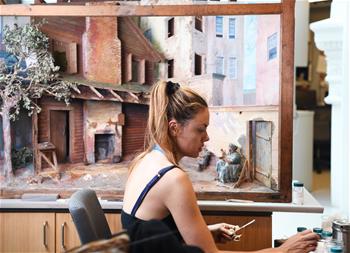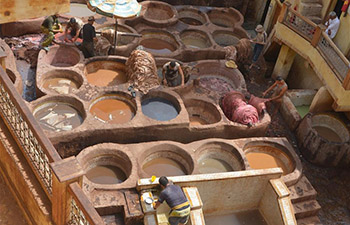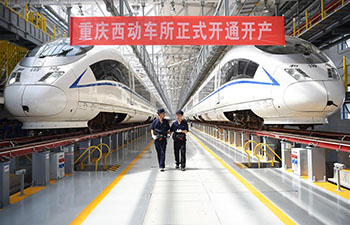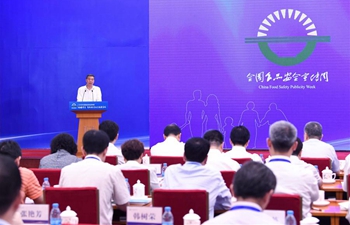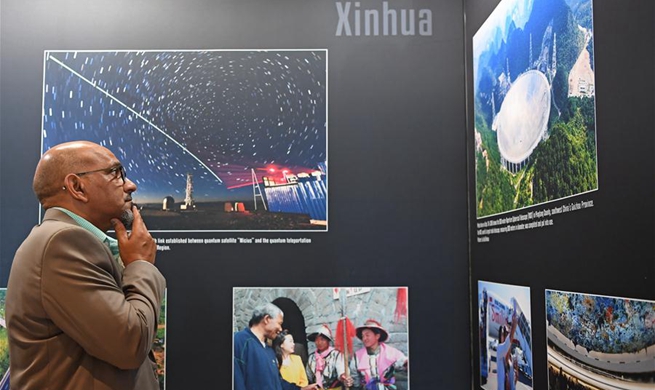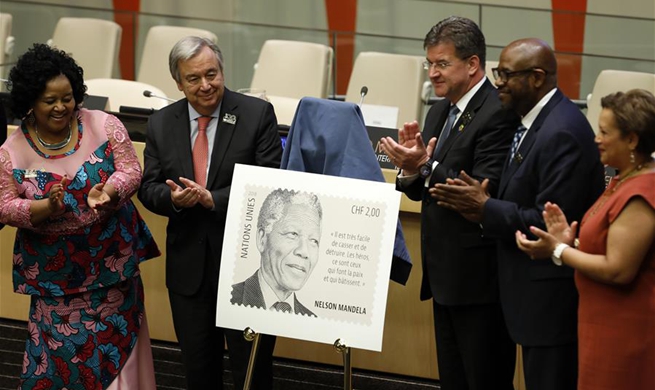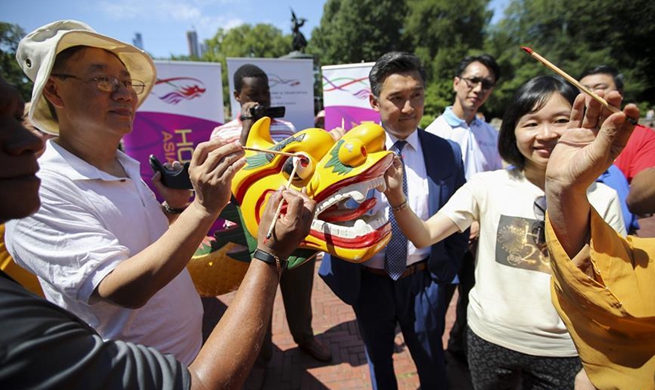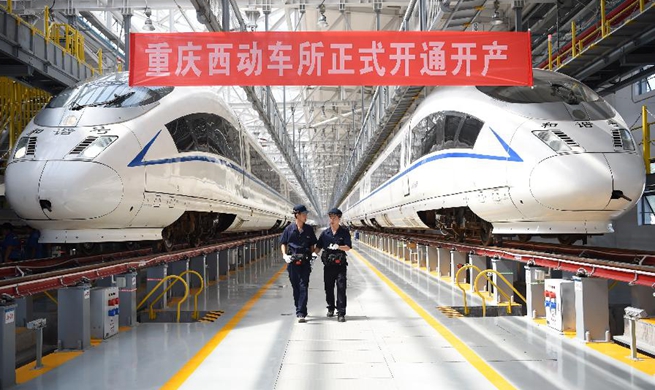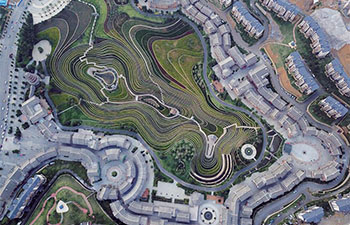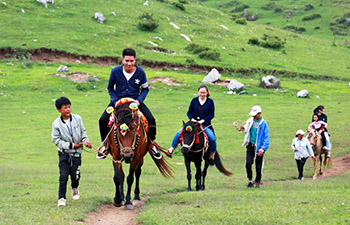SHIJIAZHUANG/GUANGZHOU, July 19 (Xinhua) -- Tian Guifen, 56, has no idea where Arabia is, but knows the robes she weaves will be delivered and worn there.
Tian, from Fucheng County in Hebei Province, works for Huaxing, one of the largest Muslim robe production and export companies in north China.
The company exports its products to over 20 countries in West Asia and North Africa, including Saudi Arabia, Iraq, Kuwait, the United Arab Emirates and Egypt. In 2017, company sales hit nearly 160 million yuan (24 million U.S. dollars).
"I'm proud that products made in China go global, and we are making products for the whole world," Tian said.
New business opportunities created by China's Belt and Road Initiative have brought a pressing need for more workers. Over 2,600 impoverished people like Tian became employed and were lifted out of poverty.
Company manager Wang Shengli said they planned to explore the Southeast Asian market, and further invest 10 million yuan on building 80 more factories in the next two years, covering all local poor villages.
China is a major producer of Arabic clothing. In some countries, such as Saudi Arabia, more than 90 percent of garments are from China.
At the eighth ministerial conference of the China-Arab States Cooperation Forum held earlier this month, China announced a "future-oriented strategic partnership of comprehensive cooperation and common development" with the Arab world by setting up free trade zones and signing trade agreements.
In China's southern trade hub of Guangzhou, Guangdong Province, Adel Alhakimi assists his Saudi Arabian client in placing an order of over 6,000 Arabic-style dresses.
Having lived in the city for almost 20 years, the 48-year-old Yemeni manages a China-Arab trade consulting company, which searches for goods and partners for businesses in the Arabian countries.
The number of employees at his company increased from two in 2004 to around a dozen now.
After graduating from university in China in the late 1990s, Alhakimi stayed in the country in hopes of building his career in China-Arabian trade.
Last year, China-Arabian trade totaled around 191.4 billion U.S. dollars, five times the amount in 2004.
Apart from infrastructure construction and energy cooperation, China's opening-up has also benefited other sectors, including the fashion and garment industry.
Alhakimi regularly visits the Guangzhou Liuhua garment wholesale market, which has over 1,000 shops with signs written in multiple languages.
"The products sold here are diverse, cheap and customizable. They attract many Middle East business people, especially during the Canton Fair," he said.
The Liyuan garment shop, one of Alhakimi's favorites, hangs hundreds of Middle East style dresses on the wall.
Xu Peili, the shop owner, says she mainly supplies customers in the Middle East and Africa, and her factory manufactures up to 120,000 items of clothing per month. She is changing the garment material and design to better meet the needs and trends of Arab customers and is trying to add Chinese elements, such as embroidery, to her dresses.
Alhakimi backs her idea. "China's economy is developing quickly, and there are many business opportunities. Arab countries' demand for Chinese goods and investments is increasing," he said.




